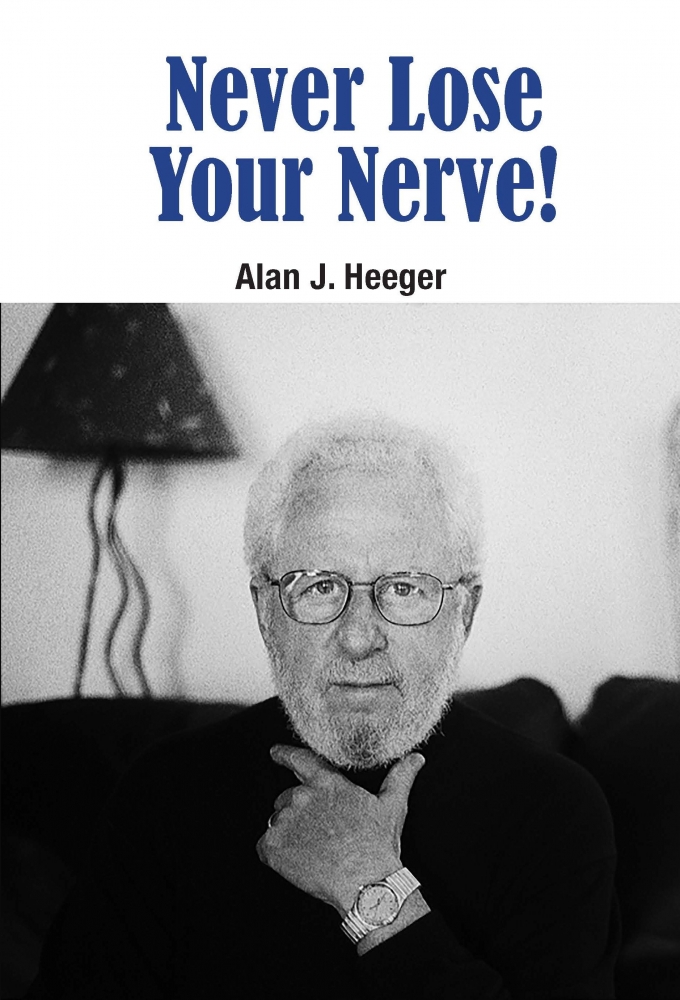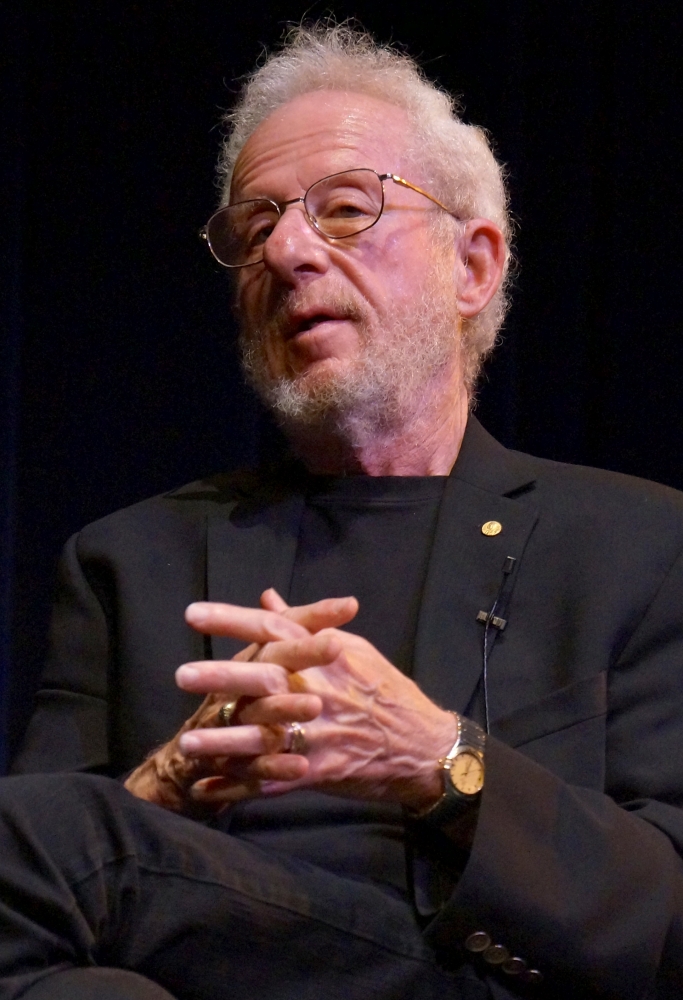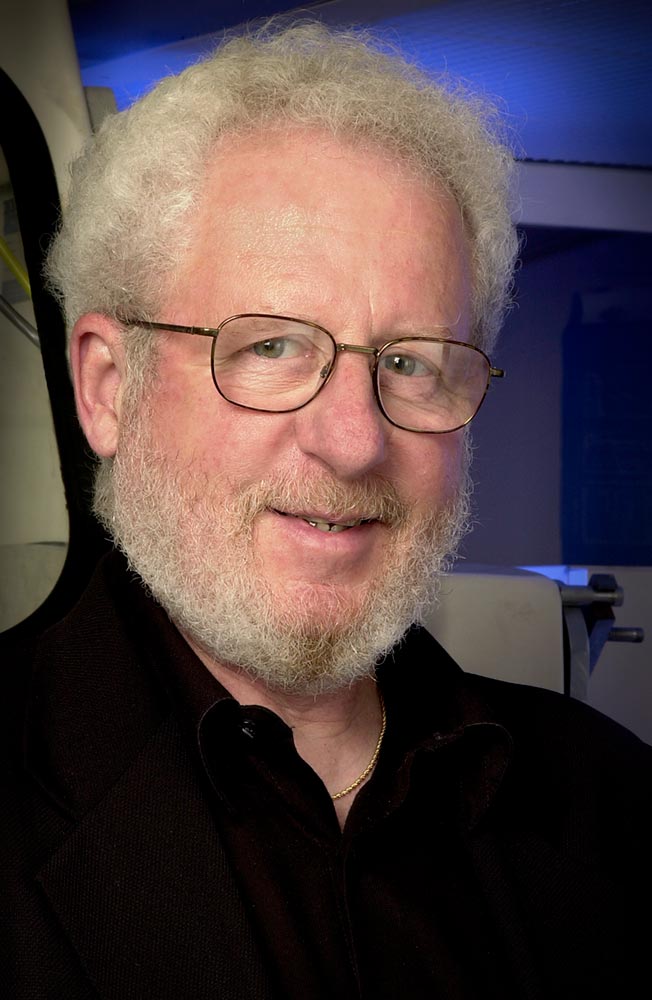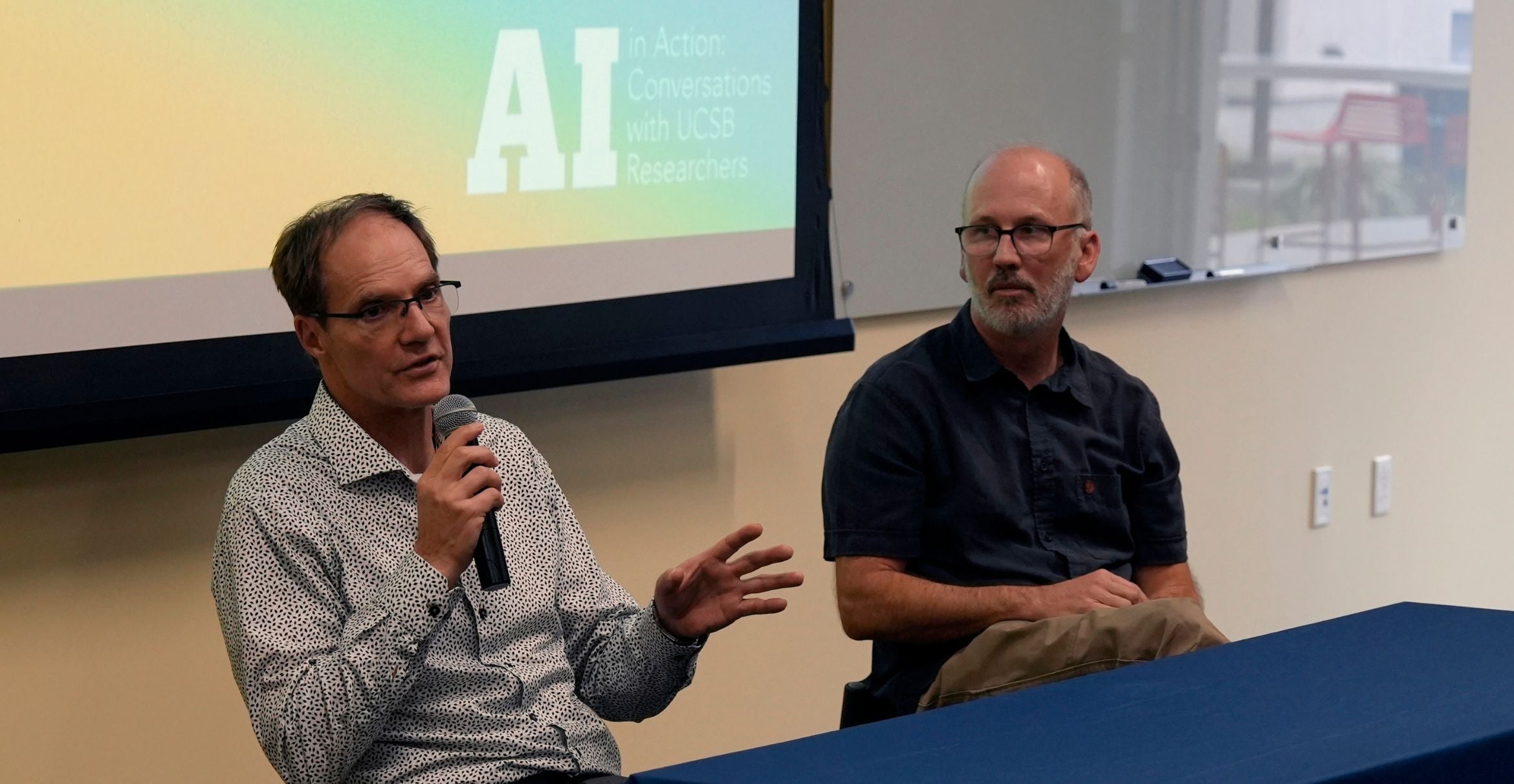A Nobel Life



When that middle-of-the-night call finally came, it was Alan Heeger’s wife who answered the phone. She turned to him, he recalled, and no sooner had she sleepily announced, “Someone from Sweden is on the line,” than Heeger himself came awake and shouted, “Don’t hang up!”
It had been years since his name was first bandied about as a contender for the Nobel Prize. As he reached for the receiver, a seed of doubt crept into his hope: Was it a hoax? A prank call?
No hoax. No joke. The prize was his.
“For so many years people told me I might win, but it didn’t happen and it didn’t happen,” recalled Heeger, a physicist who earned science’s top honor in chemistry, for his discovery and development of electrical conductivity in plastics. He is one of six Nobel laureates among current faculty members at UC Santa Barbara.
“When it finally did happen it was a big surprise,” he said. “And it changed my life.”
The story of his 2000 Nobel victory is one that Heeger recounts in his new book, “Never Lose Your Nerve!” (World Scientific, 2015). Part autobiography, part inside look at professional science, the book follows Heeger’s evolution from a small town Iowan among the first in his family to go to college, to preeminent, lauded physicist. From his influences and inspirations to detailed accounts of his most notable work — including the research that won him the Nobel — Heeger reveals the diverse sources of his unwavering professional drive as well as the personal experiences that have shaped his life.
At its heart, though, the book is an exhortation to embrace creativity, discovery and risk in the pursuit of one’s passions, whatever they may be.
“One must cherish creativity,” Heeger said. “One should be bold, audacious. Seek to discover. Go into a new area, into the unknown and look for something new. The excitement of that risk is part of the thrill of a life in science.”
That life for Heeger has taken him from undergraduate study at the University of Nebraska, where a senior year class in modern physics cemented his desire to pursue the subject in graduate school, to the doctoral years at UC Berkeley that he credits with his first exposure to great scientists and with teaching him “good taste in problems.” He spent 20 years on the faculty at the University of Pennsylvania, where he initiated what would become his Nobel-winning work, before landing at UCSB in 1982.
“Science is difficult,” Heeger said. “Not so much because the concepts are difficult, though many people think they are, but because you have to be right. You can work very hard on a problem that turns out to be unimportant … but you don’t usually know ahead of time that something will turn out to be especially important and lead to important publications or even a Nobel prize. Your intuition is involved. Where does that come from?
“One way is to work with a great scientist, get some sense of how they think and how they approach a problem,” he continued. “What do they consider interesting? Then you begin to understand how to have an intuition whether something will work out to be of value.”
Heeger credits the mentors he’s had along the way with his own now-longtime commitment to mentoring aspiring scientists. And in his book, he highlights many of them and the valuable advice they provided — from being able to communicate one’s research to a broad audience, to maintaining passion for the work.
“Without passion success is impossible, in any field,” he said. “People perhaps will find it difficult to believe that scientists are passionate about their work. But passion for your work is critically important in any creative endeavor. Music, literature of course, and in science it’s really important. There are ups and downs. Not every day is a great discovery. Sometimes there are things you’re working on and you think you had it right, then realize you don’t. You have to have the passion to sustain you, to make you go forward.”
Outside of science, one of Heeger’s personal passions is the theater. He and his wife, Ruth, are theater enthusiasts and active patrons of stage productions both locally and on Broadway, including the Tony-winning musical “In the Heights” and a successful revival of “West Side Story.”
Heeger’s love for theater and devotion to science have crossed paths more than once. In 2010, he starred with fellow UCSB physicist — and fellow Nobel laureate — David Gross, in an Ensemble Theater Company staging of “Copenhagen,” the lauded Michael Frayn play about a true-life meeting between famous 20th century physicists Niels Bohr and Werner Heisenberg.
The theater also gave Heeger the title of his new book.
The Terrence McNally drama “Master Class,” about soprano Maria Callas, features a scene in which a student asks the famed vocalist, “Why did you stop singing? Did you lose your voice?”
Callas replies, “No, I did not lose my voice. I lost my nerve.”
“That line went into my head because it’s so real,” Heeger said. “Any creative endeavor involves taking risks. You must not lose your nerve or you won’t hit the high C. You must not lose your nerve or you won’t be able to write the next book. Whether it’s science or music or literature or anything, creative endeavors involve risk. That’s true in business, too. For companies and entrepreneurs to succeed they must succeed in taking risk. So, never lose your nerve.”
Heeger’s book is available now. More information can be found here.



